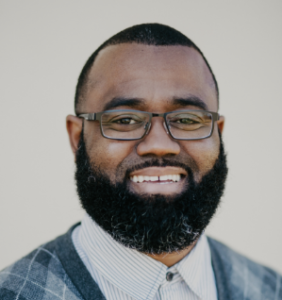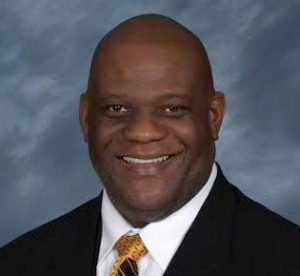Four years ago a line in Keith Getty’s song “In Christ Alone” sparked a debate over the meaning of the atonement. In nearly two months since the Southern Baptist Convention nearly failed to pass a resolution condemning the alt-right movement, African-American Southern Baptists are singing a different tune, akin to the 1982 hit by the English punk rock band the Clash: “Should I stay or should I go?”
Planners of the 2017 SBC annual meeting June 13-14 in Phoenix breathed a sigh of relief after a resolution headed toward death in committee survived parliamentary procedure and led to passage of a face-saving Resolution No. 10, “On The Anti-Gospel Of Alt-Right White Supremacy.”
The SBC resolution decried alt-right white supremacy “as antithetical to the Gospel of Jesus Christ” and repudiated “white supremacy and every form of racial and ethnic hatred as a scheme of the devil intended to bring suffering and division to our society.”
But the way a mostly white Resolutions Committee handled the original draft measure submitted by a black pastor continues to bother those seeking more racial diversity in leadership of the nation’s second-largest faith group behind Catholics.
Lawrence Ware, a lecturer at Oklahoma State University not well known in SBC circles, cast the first stone with a July 17 op-ed in the New York Times saying he was renouncing his ordination in a Southern Baptist church. Ware later said he probably would have “softened” some of his language if he had known the column was going to make headlines across the country for weeks.
Ripples went out in rebuttals including Pastor Dwight McKissic’s Aug. 2 Washington Post perspective on why as a black pastor he is staying in the Southern Baptist Convention.
McKissic, pastor of Cornerstone Baptist Church in Arlington, Texas, added in a blog Aug. 3 it is unfortunate that the committee’s decision not to move forward with his original proposed resolution on “Condemnation of the ‘Alt-Right’ Movement and the Roots of White Supremacy” turned out to be the biggest story of the convention.
McKissic said the committee’s inaction on his resolution was the result of “a systemic majority culture mindset that still dominates and rules the SBC” that “will only change as committees become more diverse.”
“The Resolutions Committee rejected my resolution not because of a sympathy or support of white supremacy or the alt-right,” McKissic said. “Their rejection was personal, directed toward me because of my outspokenness on race and other issues.”
Pastor Earon James of Relevant Life Church in Pace, Fla., said in an interview with the Reformed African American Network that even though he has been a Southern Baptist only a short while, he found the initial response to McKissic’s resolution “extremely discouraging.”
“The only thing I could think of was that it was like watching a bride and a groom standing at the altar and when the one who is officiating the wedding gets to the groom, initially he says no,” James told podcast co-hosts Tyler Burns and Jemar Tisby. “So then his brothers are like: ‘What are you doing? You can’t do this. It’s embarrassing.’
“So they take him into a side room and they coach him up a little bit,” the pastor said. “Hey, man, this looks bad. The optics are not good. You can’t tell her no in front of everybody like that. You’ve got to say ‘yeah,’ whether you feel it or not.”
“They bring him out in front of everybody, and then he’s ready to say yes,” James said. “But here’s a question: should she?”
Joseph Caldwell, president at Memphis Center for Urban Theological Studies, addressed “Why Pastor McKissic’s Language Matters and the Southern Baptist Convention Should Be Ashamed” as “a white guy who has spent most of his life and ministry in SBC churches and institutions” married for 21 years to a black wife “who has no problem calling me on my latent racism and self-righteous crusading.”
“White folks need to stop believing they have the right to set the agenda, language and tone of discussions on race in America,” Caldwell said.
Rather than “just a matter of parliamentary procedure,” Caldwell said, the Resolutions Committee’s handling of McKissic’s motion “really was a matter of using it to silence legitimate non-white voices in the SBC.”
Resolutions Committee chairman Barrett Duke said at the convention the committee rejected McKissic’s original resolution because it was “poorly written” and “inflammatory.”
McKissic, who in previous years has offered resolutions applauding the election of Barack Obama as president and last year’s denunciation of the Confederate flag, called the episode “an example of the majority culture mindset that rules the SBC.”
“Who determined the resolution was poorly written and inflammatory?” he asked. “Were those determinations factual? Did one black person agree that it was poorly written and inflammatory?”
James said on the Reformed African American Network podcast that he personally preferred McKissic’s version.
“When I read through Resolution No. 10, I’m reading and reading, and I don’t mean to sound crass, but I was waiting for it to get to the point,” he said. “You’re reading through all of these different points within the resolution that seem to — I don’t know any other way to say this, but — say let’s pat ourselves on the back for the progress that we’ve made, the steps that we’ve already taken. Let’s prove our innocence, so to speak, and then let’s get to the point. To be quite honest, for me, as a black man, it came off as hollow.”
Jemar Tisby, president of the Reformed African American Network, said that even though he isn’t a Southern Baptist, he was troubled by how the Resolutions Committee went out of its way to present the final version as “our resolution,” re-written without input from the original author.
“It feels like theological policing that an African-American pastor in good standing authored this resolution,” Tisby said on the “Pass the Mic” podcast. “The wording was deemed too inflammatory, confrontational, however you want to describe it; they didn’t like it. And so a group of mostly white men has to rewrite it and that’s the one that gets passed? That’s troublesome to me.”
In his Washington Post article, McKissic said that like Ware, he, too, has in the past considered leaving the SBC, but he stays because he loves the denomination and wants to work from the inside toward change.
Fred Luter, the only African American to be elected president of the Southern Baptist Convention, described on a North American Mission Board blog how the denomination helped Franklin Avenue Baptist Church grow from a dying Southern Baptist mission to one of the largest churches in the state.
Atlanta pastor Gabriel Stovall said in an article in Baptist Press that when Southern Baptists were silent about police shooting black men and he saw some pastors shilling for Donald Trump he wondered if he is in the right place, but he still believes in the SBC’s emphasis on ministry and missions.
Danny Akin, president of Southeastern Baptist Theological Seminary, said it’s time for white leaders like him to listen to people of color. “We aren’t just pursuing diversity to no end,” he said. “We want to see people come to Christ from every nation, tribe and tongue.”
“It’s time for Southern Baptists to make crystal clear — no one in our ranks is ‘in someone else’s house!’” Akin said. “We should not stop and we will not stop working until everyone feels that this is their home. We are brothers and sisters, we are family and we need each other.”
“Yes, these conversations are uncomfortable,” Akin said. “But sometimes we must push through the uncomfortable to get to the beautiful.”
As the Clash put it: “If I go there will be trouble, and if I stay it will be double.”
Previous stories:
In annual meeting do-over, Southern Baptists denounce ‘alt-right’ white supremacy
Satisfaction guaranteed: Southern Baptists refute efforts to soften the atonement




